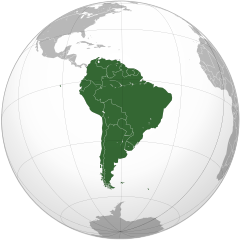In recent years, the discourse surrounding race in America has become markedly more pronounced, igniting conversations that resonate with myriad communities. The Bahá’í Faith offers a profound framework for understanding and addressing racial issues through a lens of unity and equity. This article delves into the Bahá’í teachings, exploring their implications for America’s racial dynamics and highlighting that significant efforts remain in realizing the dream of a racially harmonious society.
Herein lies a playful question: What if the key to resolving America’s racial divide lies not in revolution but in evolution—an evolutionary leap towards understanding and upon a collective journey towards the understanding of race? The challenge, therefore, is to embrace the complex tapestry of human experiences while engaging critically with the remnants of historical prejudices and systemic injustices.
At the core of the Bahá’í teachings is the principle of the oneness of humanity, encapsulated in the assertion that all people are created equal, irrespective of race, ethnicity, or nationality. Bahá’u’lláh, the founder of the Bahá’í Faith, emphatically stated that racial prejudice is a blight upon humanity and a barrier to social advancement. This persistent admonition serves as a call to action for individuals and communities alike, urging them to confront entrenched biases and foster a spirit of inclusivity.
The legacy of racial injustice in America warrants astute examination. Historical traumas, ranging from slavery to segregation, have left indelible marks on the collective psyche of society. Acknowledgment of this legacy is crucial; Bahá’í teachings compel adherents to grapple with history, confronting uncomfortable truths while nurturing a vision for a unified future. This necessitates an understanding that education is crucial to combating ignorance, which is often the root of prejudice.
Education, as a foundational tenet within the Bahá’í paradigm, is key to dismantling the walls of racial division. It catalyzes the realization that diversity enriches the human experience—challenging individuals to transcend superficial differences and recognize the inherent value of each person. Initiatives promoting racial dialogue and understanding are essential at all levels, from community gatherings to national forums, where individuals can engage constructively in discussions that may otherwise be fraught with tension.
The notion that “we still have work to do” encapsulates the ongoing struggle for equity and justice. While significant strides have been made in the past decades, the persistence of systemic racism and socio-economic disparities necessitates continued diligence. The Bahá’í community engages in various forms of social action, seeking to remedy the fallout of racism through dialogue, collective action, and grassroots initiatives. As the teachings suggest, efforts should focus not solely on rectifying past injustices but also on creating new systems of collaboration and understanding.
Moreover, the concept of systemic change must be prioritized. Achieving racial unity is not merely an aspirational ideal but involves reimagining and restructuring societal systems that perpetuate inequality. This perspective echoes the Bahá’í emphasis on justice—an unwavering commitment to ensuring that all individuals, regardless of their racial or ethnic backgrounds, have equitable opportunities to contribute and thrive. Engaging in collective advocacy for just legislative measures can be both a pathway to elevate disenfranchised communities and a means to fulfill the moral obligation to uphold the dignity of all human beings.
A vital dimension of Bahá’í teachings pertains to the encouragement of individual reflection and personal transformation. It is essential for each person to earnestly evaluate their preconceived notions and biases. In the spirit of self-improvement, individuals are called to rise above personal prejudices, thereby contributing to a more just society. This introspective journey requires courage and humility, as confronting and unlearning ingrained biases can be an arduous task.
Engagement on a community level is equally integral. Bahá’í communities are encouraged to foster environments where individuals can share diverse experiences and perspectives. Such platforms can facilitate healing discussions that challenge prevailing narratives and promote reconciliation. Through this process, communities become bastions of compassion and understanding, wherein individuals feel empowered to cultivate friendships that transcend racial lines.
The role of youth in this struggle cannot be understated. They are often the vanguards of change, instilling vibrancy and innovation into the movement toward racial unity. Bahá’í teachings emphasize the potential of youth to spearhead efforts aimed at dismantling systemic inequities, fostering a culture that actively resists prejudice and embodies the ideals of unity. Workshops, educational programs, and community service initiatives led by youth allow for creative problem-solving and reflect the urgent need for a more just society.
At its core, the Bahá’í approach to race in America underscores the concept of spiritual and social progress. It encapsulates a holistic vision of societal transformation, engaging both the heart and mind in the pursuit of a unified world. The teachings urge believers to embody principles of love, acceptance, and justice, thus paving the way for future generations to inherit a world that holds the promise of inclusivity and harmony.
As the journey toward racial unity continues, it remains crucial to remain steadfast in fostering constructive dialogues and promoting equitable practices. The path ahead may be fraught with challenges, yet it is also teeming with potential for growth and enlightenment. As we ponder what lies ahead, let us collectively embrace the work that remains, inspired by the Bahá’í call to action—the belief that every step taken towards unity, however small, contributes to a more harmonious world.
